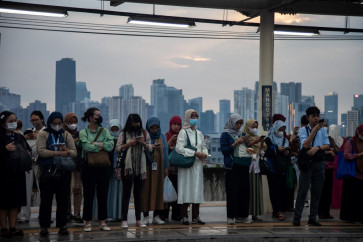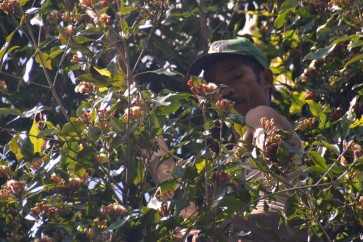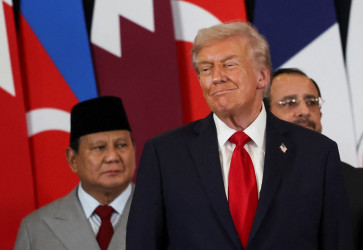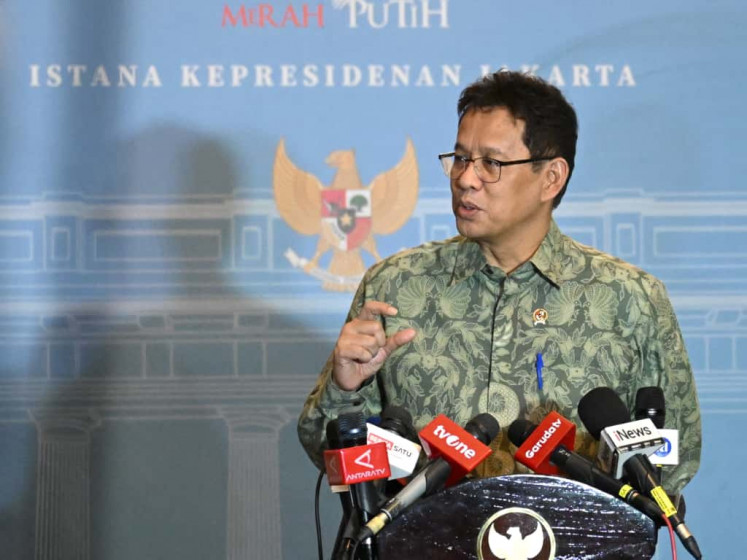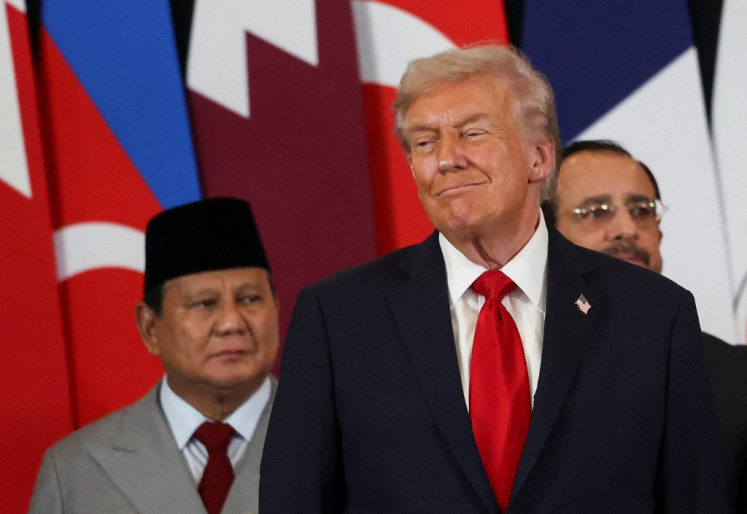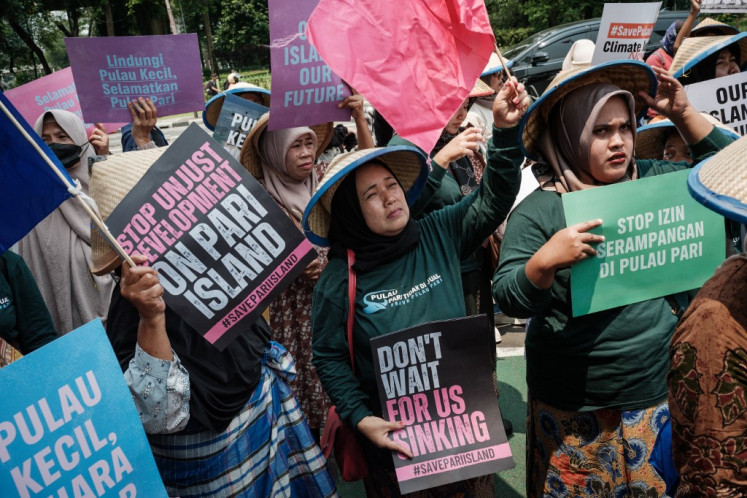Popular Reads
Top Results
Can't find what you're looking for?
View all search resultsPopular Reads
Top Results
Can't find what you're looking for?
View all search resultsRomeo the orangutan finally gets freedom
Fare thee well, Romeo: Activists from the Borneo Orangutan Survival Foundation (BOSF) at Samboja Lestari carry Romeo, a male Kalimantan orangutan, out of his cage
Change text size
Gift Premium Articles
to Anyone
F
span class="caption">Fare thee well, Romeo: Activists from the Borneo Orangutan Survival Foundation (BOSF) at Samboja Lestari carry Romeo, a male Kalimantan orangutan, out of his cage. Romeo is being relocated to Pulau 5, an island for orangutans who are going to be released into the wild.(JP/N. Adri)
An orangutan named Romeo being spent almost a quarter of a century living inside an enclosure behind a clinic in East Kalimantan before finally able to put his feet on the ground again after being sent to a pre-release island on Monday.
Romeo’s past isolation was not imposed to deprive him of his freedom, but was merely a measure taken by the Borneo Orangutan Survival Foundation (BOSF) to try to treat his Hepatitis B disease.
Romeo, a 30-year-old Pongo pygmaeus morio, one of the three subspecies of the Bornean orangutan, was one of the first orangutans to be saved by BOSF. In 1993 the foundation took him from a zoo in Taiwan where he had lived for six years.
Romeo was already suffering from Hepatitis B when he arrived at the BOSF rehabilitation center, Semboja Lestari, in East Kalimantan. As a result, the foundation decided to isolate him in a special cage to prevent the disease from spreading to other orangutans.
“At that time, we did not know how to handle orangutan with Hepatitis B. Therefore, Romeo has been in a cage ever since,” BOSF director Jamartin Sihite said at Samboja Lestari on Wednesday.
Romeo’s aggressive behavior toward other orangutans and humans was another reason for the foundation to put him in a 6-meter-high silver-colored cage during his time in the clinic. The isolation facility was equal in size to two modest houses of 36 m2 each and Romeo had been provided with a hammock for sleeping.
In the following years, although Romeo recovered from the disease, he did not immediately get a chance to be released because the foundation was not sure about his ability to survive in the wild since he continued to behave aggressively. As a result, the foundation did not make his release a priority.
“When we got a chance to release orangutan in the Kehje Sewen forest, we let the orangutan in the priority list who had passed Forest School to go first, which meant Romeo had to wait,”Jamartin said.
Forest School, he said, was a training facility where the foundation also assesses each orangutan’s ability to survive in the jungle by, among other things, hunting food and making nests, which is required before they get released.
Romeo finally got his chance for freedom on Monday, the same day the world commemorates Environment Day every year, as the foundation transferred the adult male orangutan from his enclosure at the clinic to one of BOSF’s pre-release island called Pulau 5.
BOSF will test his basic surviving skills and train him to survive in the jungle while he lives on Pulau 5.
Romeo will now live on the island with two female orangutans named Isti and Fina whose survival skills have been proven. Romeo knows the two females as they once lived in the same cage with him.
“We hope Romeo can learn survival skills from his two ‘wives’,” Jamartin said.
According to BOSF, there are currently seven pre-release islands in Samboja Lestari, with four more islands under development. “The orangutan that are nurtured by BOSF are usually orphans or have already become too accustomed to living with humans and eating human food, which is definitely not available in the jungle,” BOSF spokesperson Nico Hermanu said.
In the meantime, the Central Kalimantan Natural Resource Conservation Agency (BKSDA) has so far this year welcomed seven orangutans into its care that were brought by locals and it is noting an increase in public awareness about wildlife protection.
“We are grateful and thankful for the public’s increasing awareness and participation in saving wildlife, especially protected species.” BKSDA Sampit watch post commander Muriansyah said in Sampit on Wednesday, as quoted by Antara news agency. (ecn)


